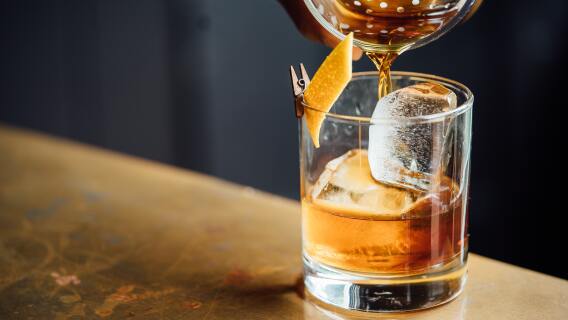If history proves one thing, it’s that alcoholic beverage stocks will always have a place in our world.
If you had alcoholic beverage stocks in your portfolio in the early part of the 20th century, you would have been wise to sell them. In January 1920, the 18th Amendment went into effect, prohibiting the “manufacture, sale, or transportation of intoxicating liquors.”
In the legal economy, Prohibition had far-reaching effects. According to an article published in the American Journal of Public Health, Prohibition resulted in the closure of at least 1,300 breweries, nearly 300 wineries, 96% of the country’s liquor wholesalers, and 90% of legal retailers. Additionally, “federal tax revenues from distilled spirits dropped from $365 million to less than $13 million.”
That doesn’t even account for the lost jobs in the trucking industry or the loss of sales in the farming industry for corn, rice, hops, malt, and other agricultural ingredients used in the production of alcoholic beverages.
In the underground economy, however, bootlegging (making and selling illegal liquor) grew almost immediately into a booming business. Mafia boss Al Capone is rumored to have made $60 million a year from his control of speakeasies around Chicago.
Mob leaders from around the country met in 1929 to establish “no-competition territories, set prices, [and] rules of adjudication,” effectively creating a national crime syndicate.
Recognizing the economic loss and social failure of Prohibition, Congress ratified the 21st Amendment on December 5, 1933, repealing the 18th Amendment and making alcohol once again legal in the U.S.
[text_ad]
The rise of alcoholic beverage stocks
The adult beverage industry has seen countless shifts since then, and state laws vary substantially. It wasn’t until 2003 that Massachusetts allowed liquor sales on Sundays. Nonetheless, alcohol sales in the U.S. reached $2.6 billion in 2019.
That’s a number that should pique the interest of anyone thinking about investing in alcoholic beverage stocks.
In fact, alcohol has been enjoying a surge of enthusiastic appreciation that’s lasted years. Cocktail culture is encouraging otherwise sane people to pay $15 or more for a mixed drink, and a bartender with imagination and a flair for innovation can find work anywhere drinkers appreciate homemade celery bitters. Microbreweries and their inventive (and sometimes inexplicable) beer ingredients are finding willing drinkers, as are craft distilleries, makers of flavored vodkas, and the like.
And savvy marketers, recognizing that there is a taste among the well-to-do for exclusive (expensive) brands and special bottles have relentlessly hyped the myth of hard-to-get names.
Alcohol may be the social relaxant-of-choice for most of the world, but it’s also a huge industry whose members have been growing through mergers and takeovers. Mighty Anheuser-Busch (BUD), the parent company of Budweiser, merged with Belgian-Brazilian brewer InBev in 2008, and AB-InBev recently paid more than $100 billion to take over SABMiller. The resulting brewing titan is the source of about 30% of the beer in the entire world.
The future of alcoholic beverage stocks
We all know that the craft beer movement has taken market share from the big boys like Budweiser in recent decades. Similarly, though not on the same scale, craft distilleries have sparked a “farm-to-flask” movement in spirits ranging from bourbon to vodka. Wine, too, is seeing drinkers revolt against the increasingly corporate output that comes from California.
Does that make it worth investing in any of these alcoholic beverage stocks? Generally speaking, sin stocks like alcohol and cigarettes tend to do well during volatility and even recessions.
But for some safety within the beverage industry, packaging is the surest bet as bottle and can volume is somewhat insulated from trends in flavors and brewers. Sure, there are trends in can shape and size, but for now, this is a good thing (the 16-ounce beer can has been a huge seller). If you’re looking for a real nuts and bolts way to invest in beer, long-term investors would be wise to pick up some shares of Ball Corporation (BLL).
Ball Corp. is a materials-related company that makes consumer packaging for household, beverage and food products. The company has many name-brand clients, including Coca-Cola, Anheuser Busch, Procter & Gamble, Nestle, as well as numerous other Fortune 500 companies.
There are also a few smaller brewers that are publicly traded and offer opportunities. But this is a fickle industry, and investors in these companies should pay attention to the trends in the underlying business.
One example is Boston Beer Company (SAM). If you’ve spent any time in the Northeast, you likely know Boston Beer well. The company is a well-known brewer in Boston, Mass., and has a wide assortment of beers, flavored malt beverages, hard cider, hard teas, and kombucha offerings under the Samuel Adams, Twisted Tea, Angry Orchard, Truly Spiked & Sparkling, Marathon Brewing, Tura and Wild Leaf Craft Hard Tea brands.
And Boston Beer recently merged with Dogfish Head in a $300 million deal that brings several IPAs and session sour brands, as well as around $115 million in annual sales, under the Boston Beer umbrella.
Are there any alcoholic beverage stocks that you think would make a good investment? We’d love to know what you think. Leave your thoughts in the comments below.
[text_ad]
Note: This post has been updated from an original version, published in 2020.
